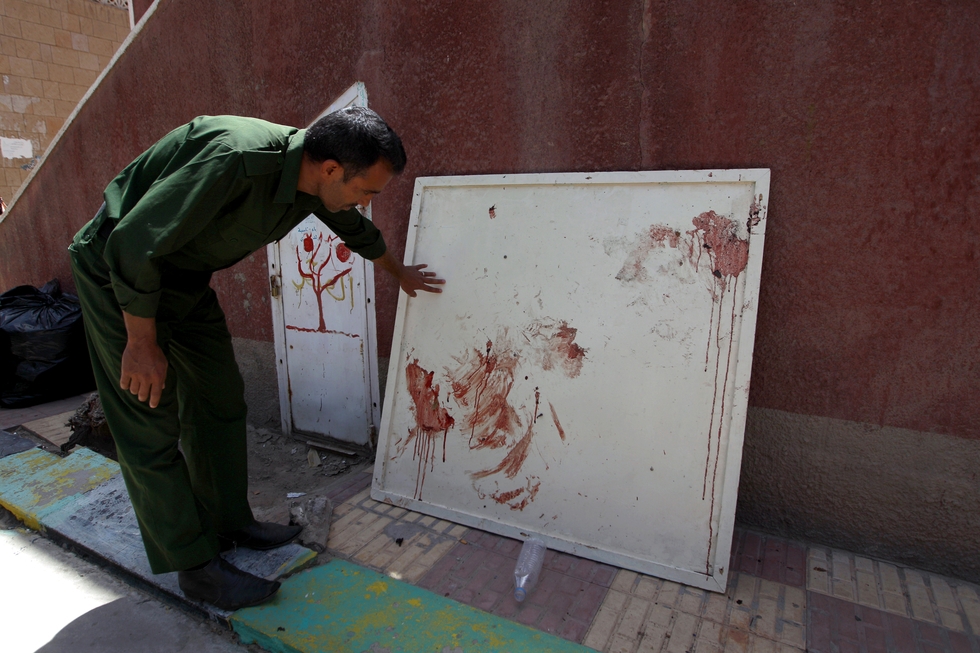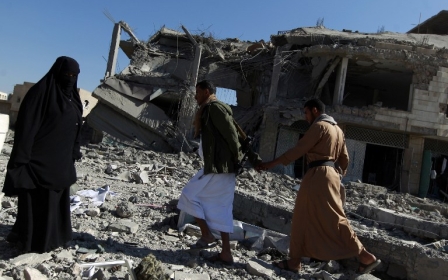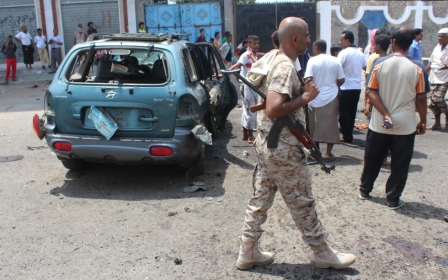Yemen government officials dismiss reports of ceasefire deal

Yemeni pro-government officials on Tuesday dismissed reports that they and their opponents were on the verge of reaching a ceasefire deal after weeks of tense talks in Kuwait.
Mohammed al-Ameri, a member of the government's delegation in Kuwait, said reports of an approaching agreement were “lies aimed at muddying the waters” during ongoing negotiations.
Diplomatic sources had told Iran's Press TV news site on Tuesday that a deal between the warring sides was “imminent” after weeks of UN-brokered talks in Kuwait City.
The UN envoy to Yemen, Ismail Ould al-Sheikh, did not address reports of an impending deal in comments made on Tuesday, but confirmed that “indirect” talks were continuing.
A second member of the delegation, Information Minister Mohammed Abdel Majid Qabbati, warned that pro-government forces were ready to launch an assault on Sanaa, the Yemeni capital, if talks fail.
Qabbati told Saudi news Okaz on Tuesday that “forces from the Saudi-led coalition are ready to enter Sanaa, and are now stationed just 40 kilometres from it”.
Sanaa was seized by Houthi rebels in 2014 following a lightning advance from their northern mountainous stronghold near the Yemeni border with Saudi Arabia.
Since then, supporters of the government of President Abd Rabbuh Mansour Hadi have battled to retake control of the capital and most of Yemen's other major cities from the Houthi rebels, enlisting support from a coalition led by Saudi Arabia.
As talks continued in Kuwait, fighting on the ground in Yemen intensified with at least 38 people killed over a 24-hour period.
The renewed fighting came in violation of an increasingly fragile truce deal agreed during the Kuwait talks.
Battles raged in Bayhan, on the border between Shabwa province in the south and Marib in the east.
There was also fighting in Sarwah, an oil-rich area west of Marib, sources told AFP, saying that a total of 23 rebels and 15 soldiers were killed in both areas.
Also on Tuesday, Saudi Arabia said it had intercepted a ballistic missile filed across the border from Yemen.
The missile launch, thought to have come from the Houthi rebels, is the second since negotiations began on 21 April.
New MEE newsletter: Jerusalem Dispatch
Sign up to get the latest insights and analysis on Israel-Palestine, alongside Turkey Unpacked and other MEE newsletters
Middle East Eye delivers independent and unrivalled coverage and analysis of the Middle East, North Africa and beyond. To learn more about republishing this content and the associated fees, please fill out this form. More about MEE can be found here.




